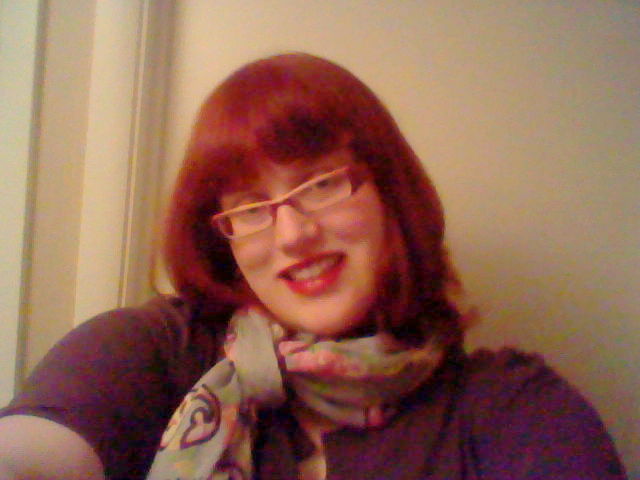At the beginning of every class, there’s always a bit of an icebreaker. Sometimes it’s a specific question like, “What’s your favorite movie?” (“The Cabin in the Woods,” incidentally) or “Who’s your favorite band?” (This can get awkward when you only listen to musical cast albums.) Or it can just be an open-ended “introduce yourself” type of thing.
Whatever the case, I usually mention the fact that I have Asperger’s syndrome. Most people just smile and nod and file it away in the back of their mind. Some people, though, will ask questions or mention a relative or friend they have with the same diagnosis.
One reaction I hadn’t received until fairly recently is one that initially baffled me, and it still continues to throw me off. Some people, when I share my diagnosis, step in and congratulate me on being brave enough to disclose that information.
So for those of you who say that to me, I want you to know it’s not wrong to think or say that. I’m not saying you’re misguided or offending me in any way. Sadly, we do live in a world where there’s still a serious stigma surrounding mental illnesses and disabilities. That being said, it’s never crossed my mind to keep my diagnosis a secret. I mean, there’s always the chance someone will judge me for it or try to argue with me or give me a lecture about how Asperger’s is a completely made-up diagnosis. But one thing I’ve learned over the years is those people simply aren’t worth my time. I’d rather identify them right away, so I don’t have to waste precious energy trying to argue with a brick wall.
There’s also the fact that, for years, I wasn’t diagnosed. I was about 16 when I finally received my diagnosis, and up until that point, I’d simply been labeled as a bad kid. I spoke over teachers, I talked back, I threw “tantrums,” which were actually meltdowns.
For years teachers had called me a bad kid, and it came to the point that I thought I was a bad kid. Those teachers were smarter than me, after all. If talking back made me a bad kid, even though I had no concept of what it was or how I was doing it, then I was a bad kid.
For years I believed this, and it wasn’t until my diagnosis that I finally had something to say back to those teachers. Even if the worst years were behind me, it comforted me to know I really wasn’t a bad kid, and hopefully, no one would see me as that again. I was just a kid who was confused. I didn’t understand the concept of talking back, and I didn’t know why teachers got mad when I questioned them. My tantrums, which were always scarier for me than anyone else, weren’t a result of me being spoiled or being a brat. It was the result of my being overwhelmed. It’s something I could’ve told people if I could’ve formed the proper words at the time.
I never had a chance to tell my teachers or former classmates about my diagnosis. I never had the chance to explain myself in an articulate way. Now I finally have that ability. I can tell people, right off the bat, that I have Asperger’s.
When I first started writing this, I thought I’d describe it as a disclaimer. But now, I realize that’s not right. “Disclaimer” has a bit of a negative connotation. It’s more of a prologue than anything else. It’s the part of my story that needs to be understood before you can understand the rest of it. Because even though my disability doesn’t define me, I help define it.
The true definition of Asperger’s comes from the people who have it. Their lives, their stories and their personalities all shape what we know about Asperger’s. So, yes, I will share my diagnosis, but it’s not because I’m brave. I share because even if you know what Asperger’s is, know someone with it or even have the diagnosis yourself, you don’t have the complete picture. I don’t have the complete picture. No one does. But we can slowly piece it together, and if I can add one more piece to someone’s picture, then it’s worth sharing it, even if they judge me for it.
I don’t see it as being brave; I see it as being me. I’m doing a service for you by expanding your definitions and understanding, if only a little.
The Mighty is asking the following: Write a letter to anyone you wish had a better understanding of your experience with disability and/or disease. If you’d like to participate, please send a blog post to community@themighty.com. Please include a photo for the piece, a photo of yourself and 1-2 sentence bio. Check out our Share Your Story page for more about our submission guidelines.


